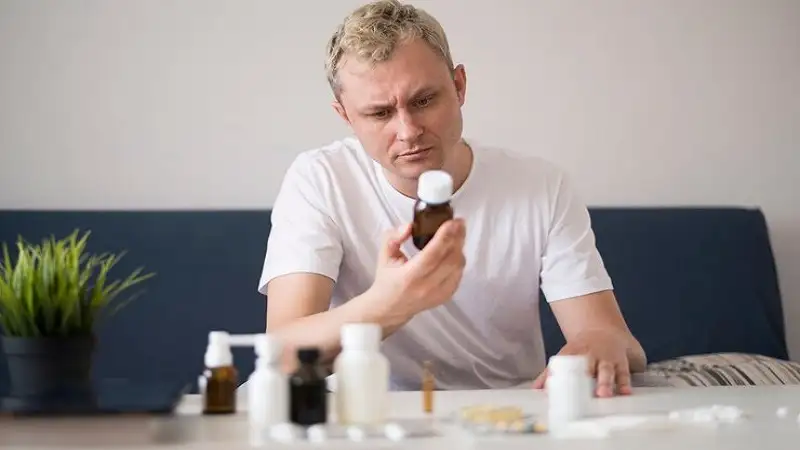Detoxing from drugs is a vital first step toward recovery. It’s a challenging journey, but with the right strategies and support, success is achievable. This guide provides practical advice to help you navigate the detox process effectively while minimizing discomfort and risks.
Understanding Drug Detox: The First Step to Recovery
Drug detox is the process of eliminating substances from the body. This crucial stage paves the way for long-term recovery by addressing physical dependence. Detox typically involves withdrawal symptoms, which can range from mild to severe, depending on the substance and duration of use. Understanding this process helps set realistic expectations and reduces fear.
Seek Professional Support for a Safer Detox
Detoxing on your own can be dangerous, especially with substances like alcohol, opioids, or benzodiazepines, which may cause life-threatening withdrawal symptoms. Enrolling in a medically supervised detox program ensures your safety through:
- 24/7 medical monitoring to address complications.
- Medications to alleviate withdrawal symptoms.
- Psychological support for managing cravings and emotions.
Create a Strong Support System
A successful detox requires emotional and social support. Surround yourself with family, friends, and professionals who can guide and motivate you. Consider these tips:
- Join support groups like Narcotics Anonymous for shared experiences and accountability.
- Communicate openly with loved ones about your goals and challenges.
- Lean on counselors or therapists for emotional resilience.
Adopt Healthy Habits to Support Your Body
Your body needs to heal during detox. Building a foundation of good health can ease the process:
1. Stay Hydrated
Substances can dehydrate your body, and withdrawal often causes vomiting or sweating. Drink plenty of water or electrolyte-rich fluids to stay balanced.
2. Eat a Balanced Diet
Focus on nutrient-rich foods that replenish vitamins and minerals. Include:
- Fresh fruits and vegetables.
- Lean proteins like chicken or tofu.
- Whole grains for sustained energy.
3. Get Enough Sleep
Sleep aids in physical recovery and mental clarity. Establish a calming bedtime routine and create a sleep-friendly environment.
Prepare for Withdrawal Symptoms
Withdrawal symptoms are an inevitable part of detox. Preparation is key to enduring this phase:
- Know the symptoms: Anxiety, nausea, sweating, and insomnia are common.
- Use prescribed medications: Doctors may recommend medications like methadone or buprenorphine to reduce cravings and withdrawal severity.
- Practice stress relief: Meditation, deep breathing, and light exercise can calm your mind and body.
Focus on Mental Health During Detox
Detox affects not just your body but also your mind. Addressing mental health ensures long-term success:
1. Therapy and Counseling
Counseling helps you understand the root causes of addiction and develop coping strategies. Cognitive Behavioral Therapy (CBT) is particularly effective.
2. Journaling
Writing down your thoughts can help you process emotions and track your progress.
3. Mindfulness Practices
Yoga, meditation, and mindfulness exercises reduce stress and improve emotional stability.
Avoid Triggers and Temptations
Temptations can derail your detox efforts. Identify and avoid triggers such as:
- People who encourage substance use.
- Places associated with past drug use.
- Emotional stressors that prompt cravings.
Instead, fill your environment with positive influences, like uplifting music, hobbies, or inspirational books.
Gradual Transition to Long-Term Treatment
Detox is just the beginning. A sustainable recovery plan involves continued treatment:
- Rehabilitation Programs: Enroll in inpatient or outpatient rehab to learn life skills and build a sober lifestyle.
- Aftercare Services: Participate in follow-up therapy and group meetings to maintain accountability.
- Set Goals: Develop achievable milestones to track progress and stay motivated.
Celebrate Milestones and Progress
Recovery is a journey, not a destination. Recognize and celebrate each small victory to keep your spirits high. Whether it’s completing a week of sobriety or handling a craving without relapse, every success matters.
Conclusion
Maximizing your drug detox success requires a holistic approach that combines medical support, mental health care, and lifestyle changes. While detox can be challenging, the rewards of a healthier, drug-free life are worth the effort. With preparation, determination, and the right resources, you can achieve lasting recovery.
